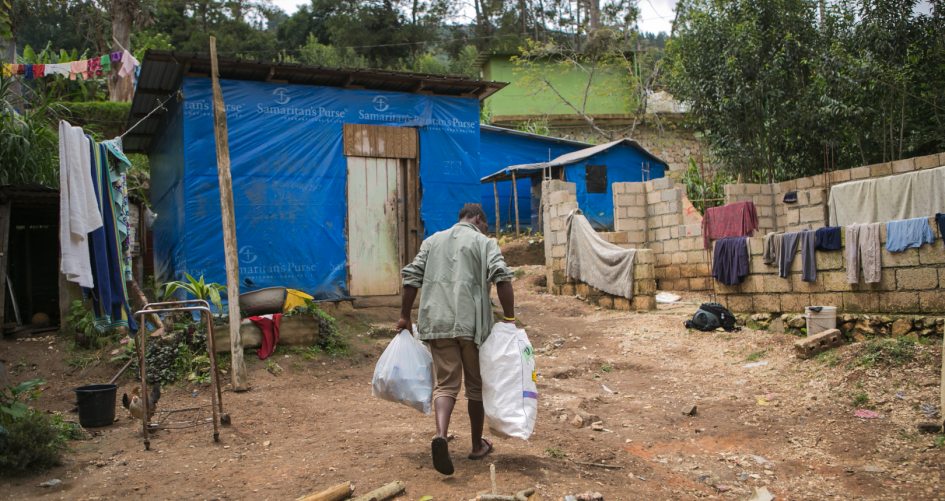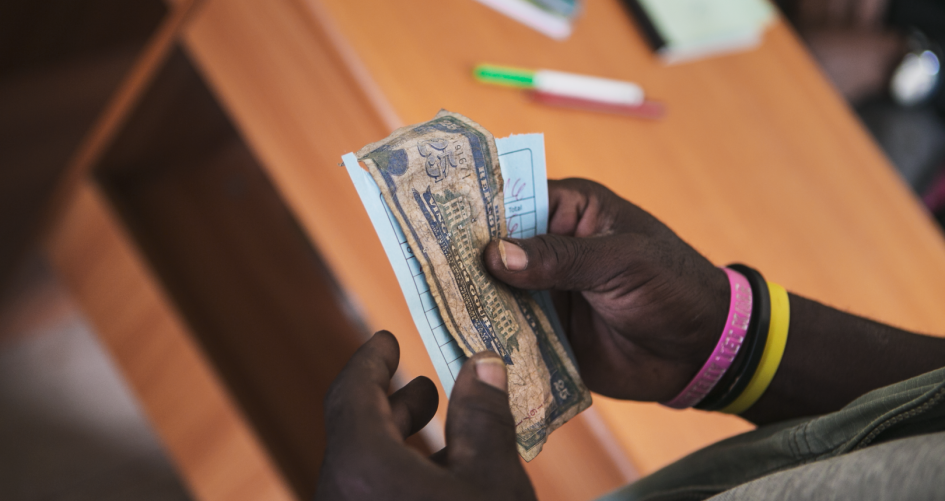The Plastic Bank is an international corporation that has implemented a market-based solution to improve the health of the planet. In Haiti, plastic waste is collected by local people and sold to global brands, who recycle and re-use it. Local plastic waste collectors receive payment for each piece of plastic collected through an ethically sourced system, which not only aids in improving the local environment but also in poverty alleviation. The collection of waste plastic from the environment removes plastic that acts as breeding grounds for disease carrying organisms such as mosquitos, helping to reduce the spread of malaria, dengue fever, and cholera. Local birdlife is also protected from becoming entangled in and ingesting waste plastic. Some of the most marginalized people on the planet reside in Haiti and the project provides them with much-needed cash and essential elements, such as a child’s school tuition.
Key facts
- There are 3,500 recyclers in Haiti and they bring plastic to one of twenty recycling markets;
- Top recycle market entrepreneurs have recycled up to 200,000 pounds/month;
- After paying expenses and wages to four employees, owners can net USD $3,000- average earning of recycle markets are about half the maximum.
The problem
In developing nations, waste management systems are either lacking, inefficient, or underfunded. Often, the plastic waste management strategy is to dispose of plastics directly into ocean bound waterways or to burn it. Plastic disposal into waterways facilitates the spread of some tropical diseases by providing breeding grounds for mosquitos, which can foster the spread of cholera. Floating plastic waste can survive for thousands of years and can serve as mini transportation devices for invasive species. Burning plastics releases pollutants, such as dioxins, that build-up in the environment and adversely affect human health. Harmful chemicals that are present in plastic buried deep in landfills can leach into groundwater. Plastic debris laced with chemicals are often ingested by marine animals and can also injure or poison wildlife. At least 267 different species are known to have suffered from ingesting or becoming entangled in marine plastic debris. Last but not least, around 4% of the world’s oil that is produced, is used as raw materials to make plastics and a similar amount is consumed as energy in the process, resulting in greenhouse gas emissions contributing to climate change.
The solution
The Plastic Bank applies integrated carbon reduction strategies to recycle plastic, which may be exchanged for cash and essential elements, such as a child’s school tuition. Top recycle market entrepreneurs recycle up to 200,000 pounds/month. The Plastic Bank’s efforts make the local society more resilient and better able to adapt and prepare for climate related stresses. By monetizing and connecting the plastic waste to global supply chains, the value of recycling is being acknowledged. The project delivers a wide array of environmental benefits and provides families with income opportunities and critical products and services.
Helping the planet
Removal of waste plastic from the waterways prevents many adverse environmental and health impacts associated with its disposal. Clearing waterways ensures that natural basins can more effectively handle large storms to reduce risks like flooding and landslides and thus maintain habitats and ecosystems. Marine life and waterfowl species are being protected against ensnaring or ingesting plastic, thus aiding in the retention of biodiversity. Reducing the amount of new plastics from being manufactured mitigates the production of greenhouse gases and addresses climate change.
Helping people
The Plastic Bank’s team in Haiti trains the recycle market entrepreneurs in financial literacy, basic accounting, enrollment of recyclers, strategies to increase volumes, and engaging/educating the community. Several co-benefits aid some of the most marginalized and poorest people to escape the poverty cycle, such as creating income opportunities that can double pre-existing income and strategies that incentivize parents to use income gained from plastic collection to pay for their children’s education. Currently in Haiti, over 200,000 children cannot attend school for lack of financial funds, thus making the project a viable means to access education for their children. Plastic removal from urban centers can also make local environments more aesthetically pleasing, which could then attract tourism and thus providing an additional economic opportunity.
Spillover effect
The Plastic Bank is designed to be largely an easy business solution. The mobile-based blockchain app that manages payments, stores credit and validates impact claims greatly enhances the possibility to scale The Plastic Bank into new markets. The business model relies on supporting and improving existing waste management facilities, specifically their ability to process recycled plastics. Effective support of recycling facilities is being enhanced the longer the company operates and the more markets they operate in. Connecting the recycling facilities to the benefits of supplying ‘social plastic’ The Plastic Bank’s trademarked plastic to global brands will accomplish significant economies of scale. The Plastic Bank has also been designed to be as easily executed as possible in developing economies that have elevated rates of poverty and mismanaged plastic waste. Mismanaged plastic waste is often correlated with underdeveloped economies and The Plastic Bank offers significant climate change mitigation and adaptation solutions to a wide variety of underdeveloped nations. The Plastic Bank’s success in Haiti has led to its expansion into south east Asia. Since November 2016, work has commenced in setting up The Plastic Bank in the Philippines, which is expected to be operational by the second half of 2017. implementation of The Plastic Bank in Indonesia is set to commence in January 2018.




Images owned by the activity partners, all rights reserved.









